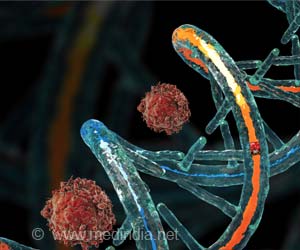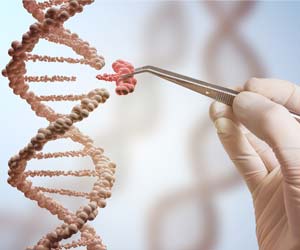New algorithm PRRDetect could make cancer treatment more precise by analyzing tumor DNA.
- The PRRDetect algorithm identifies hidden DNA repair flaws in tumors
- It helps doctors choose effective therapies based on the tumor’s genetics
- This advancement brings personalized cancer care closer to routine clinical practice
Scientists create 'metal detector' to hunt down tumours
Go to source). The newly developed tool, known as PRRDetect, examines a tumor's entire genetic code to pinpoint issues with DNA repair mechanisms. Tumors with such defects often show a better response to treatments like immunotherapy, which utilizes the body’s immune system to combat cancer.
According to Professor Serena Nik-Zainal, the lead author of the study, genomic sequencing is now faster and more affordable than ever before, approaching the point where tumor sequencing could become as routine as blood tests or scans in healthcare settings. However, to make genomics truly impactful in treatment, doctors need tools that provide clear insights into how a tumor might react to therapy, particularly in aggressive cancers such as those affecting the lungs or brain.
Development and Functionality of PRRDetect
PRRDetect was created after researchers discovered mutation patterns known as “indels,” which are small insertions or deletions in DNA that are linked to defective repair systems in cancer cells. When these systems fail, tumors become more vulnerable to specific therapies. The algorithm acts as a detector, identifying these patterns within a tumor's genetic material.This study builds on previous research by Nik-Zainal, who led an extensive analysis of cancer genomes funded by Cancer Research UK. The team’s latest work focused on cancers that are more likely to present DNA repair defects, including those in the bowel, brain, uterus, skin, lungs, bladder, and stomach.
Future of Cancer Treatment: Personalized Medicine
Dr. Iain Foulkes of Cancer Research UK explained that tools like PRRDetect are revolutionizing cancer care by enabling a more personalized approach to treatment. By understanding the specific genetic makeup of a tumor, doctors can choose the most effective therapies, improving the chances of successful treatment and offering patients a better quality of life.Professor Mike Lewis from the National Institute for Health and Care Research (NIHR) praised the algorithm as an important development in cancer treatment. He emphasized its potential to help identify which therapies are most likely to succeed, thereby increasing the likelihood of positive outcomes for patients.
Growing Role of Genomic Medicine in Healthcare
Professor Matt Brown from Genomics England highlighted how genomic medicine is becoming an essential part of everyday healthcare. He noted that the creation of PRRDetect exemplifies the immense value of whole genome sequencing, not just in research but also in clinical practice, especially across various types of cancer.In conclusion, the development of PRRDetect represents a significant step forward in cancer treatment by enabling more personalized and targeted care. With the ability to identify DNA repair issues in tumors, this tool offers the potential for better treatment outcomes, especially for aggressive cancers.
Reference:
- Scientists create 'metal detector' to hunt down tumours - (https://www.genomicsengland.co.uk/news/scientists-create-metal-detector-to-hunt-down-tumours)
Source-Medindia
















